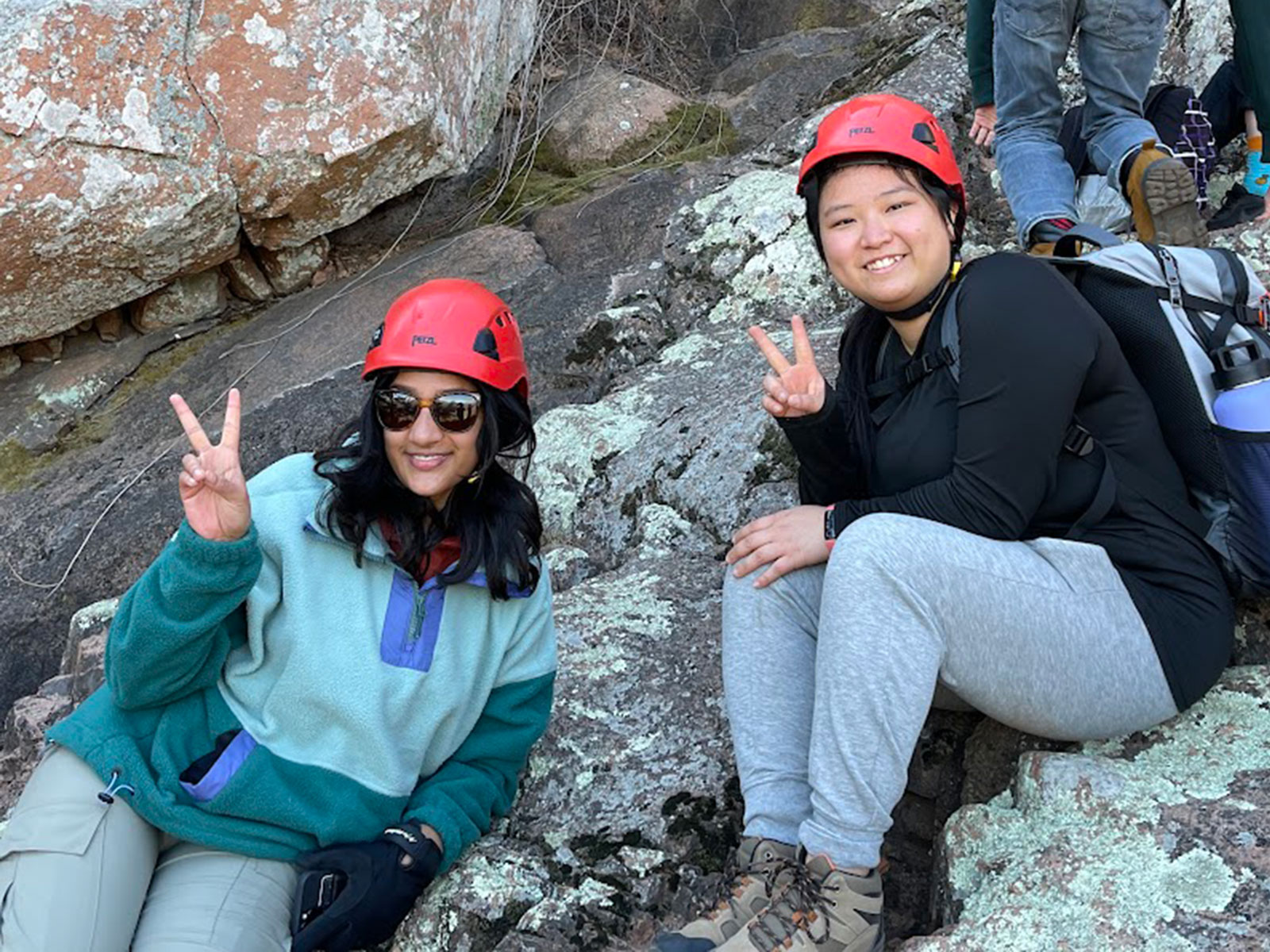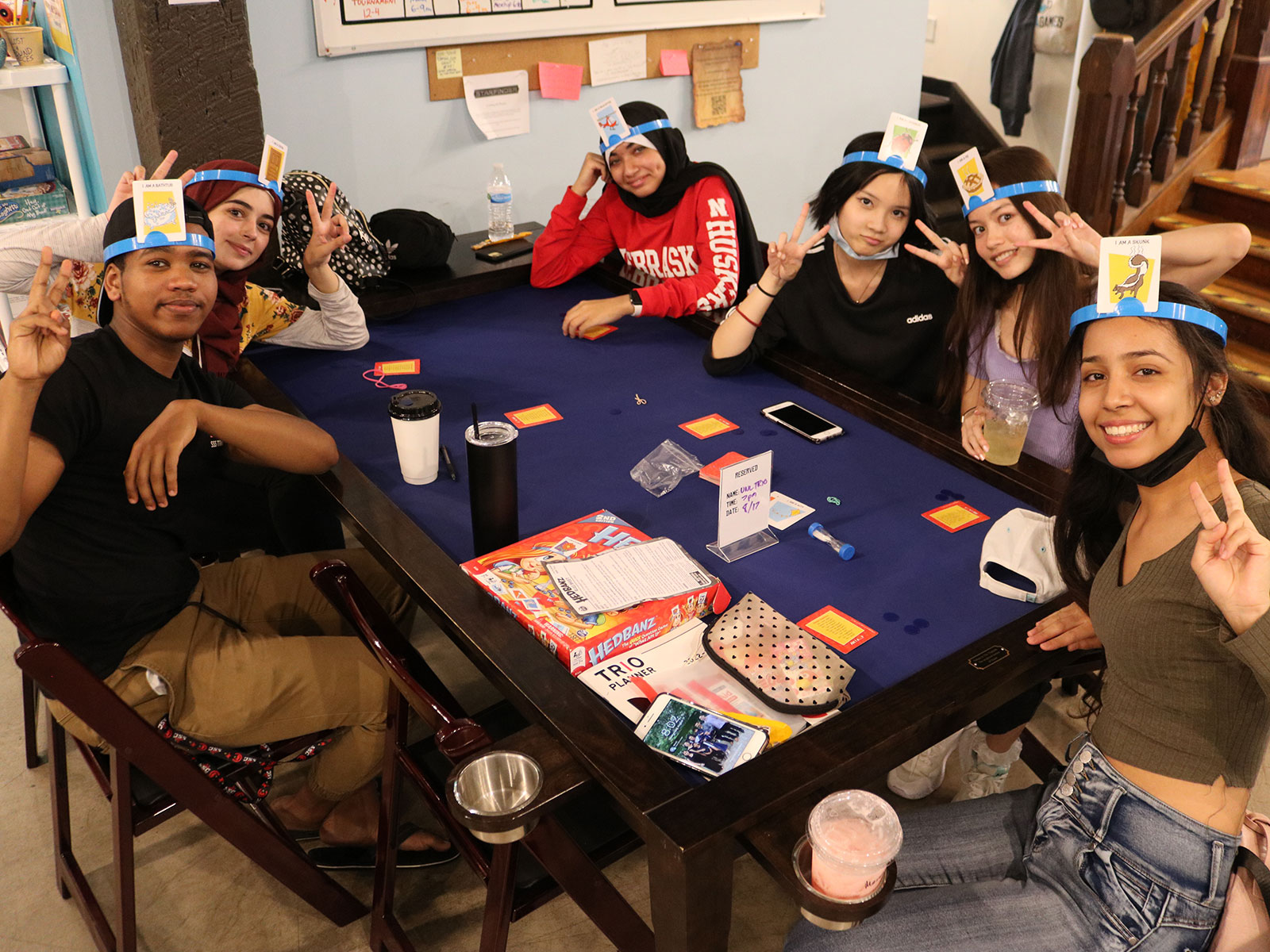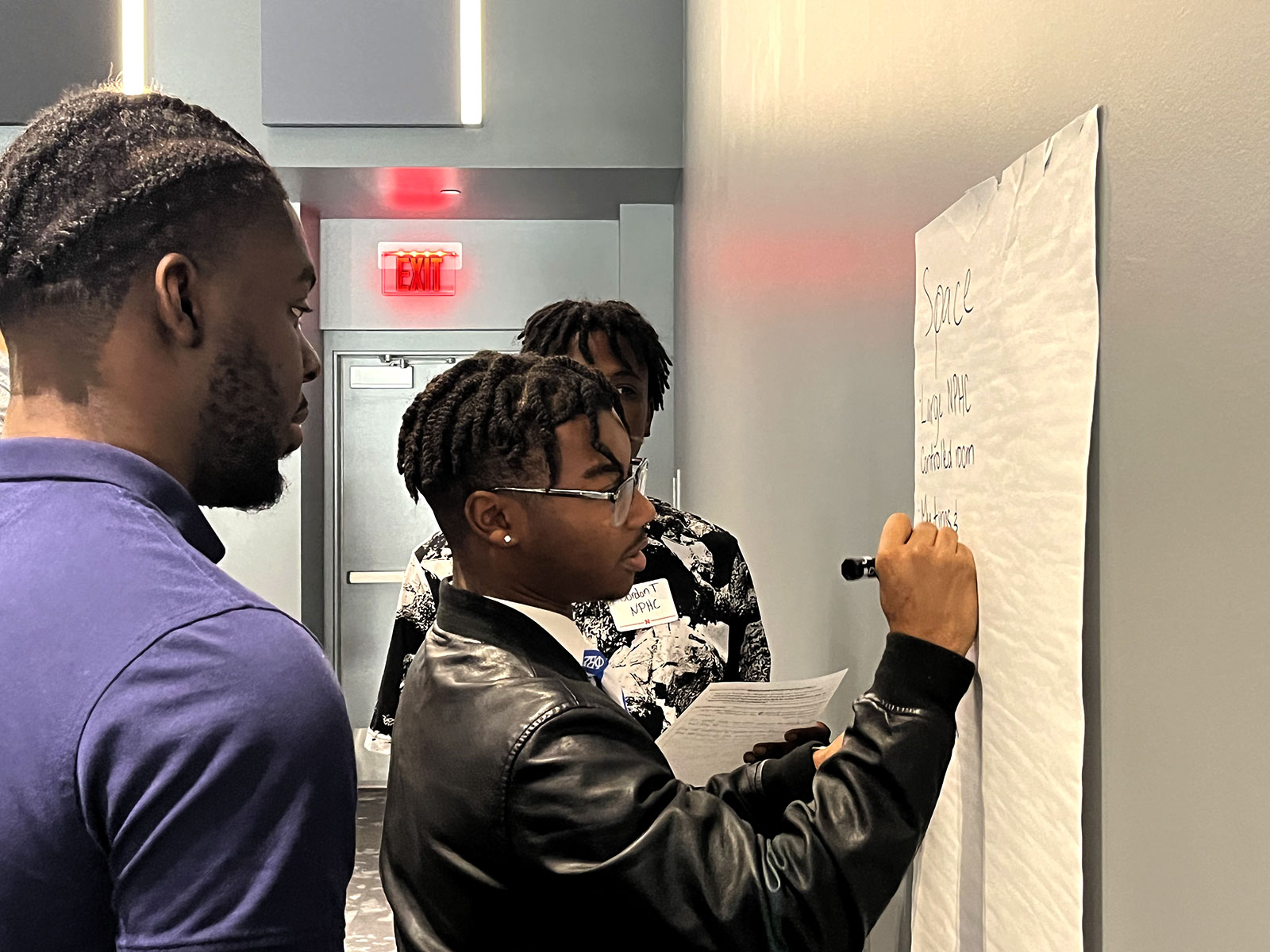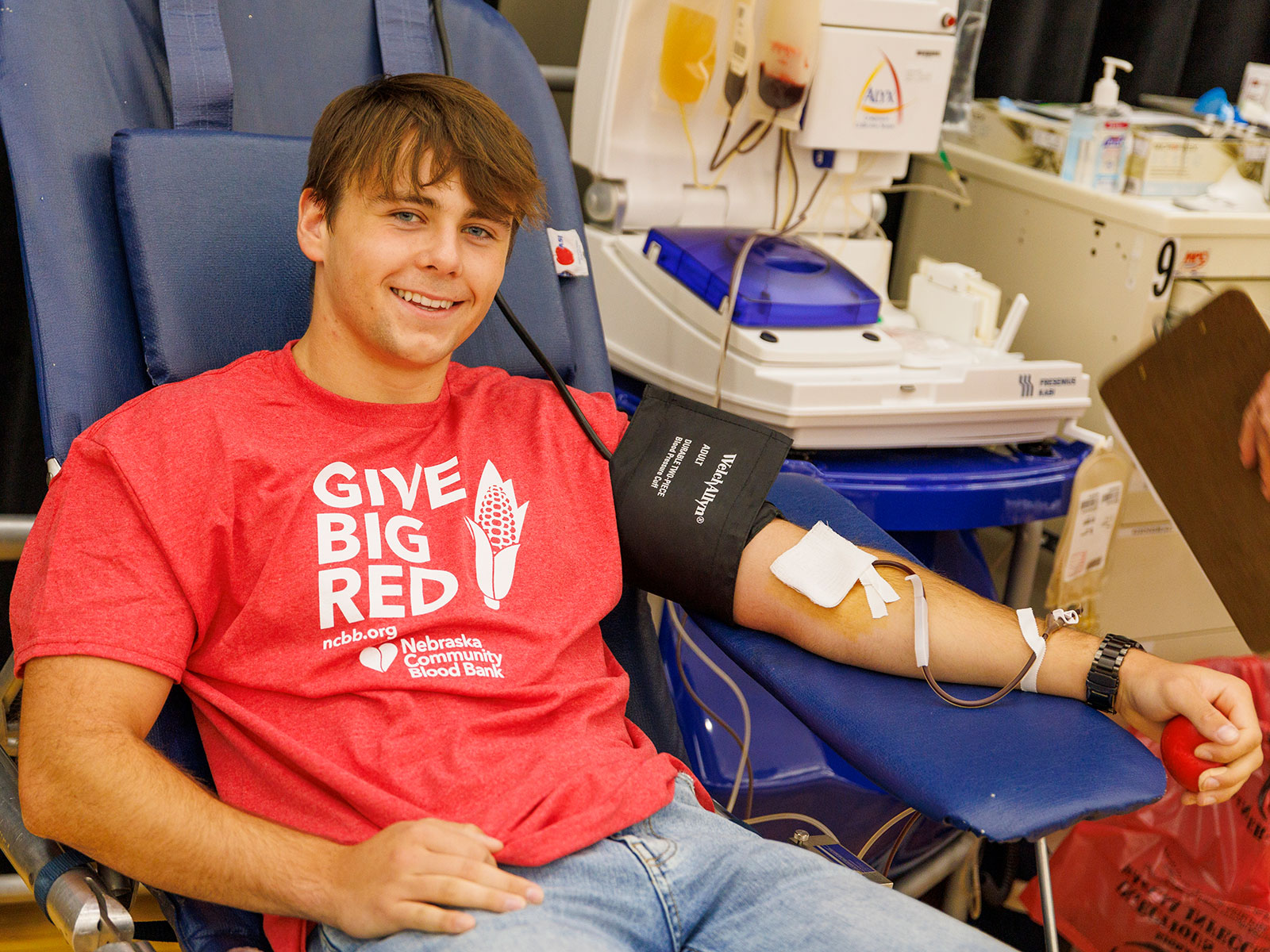
LEARN
Huskers will seek broader viewpoints, actively reflect and apply learning to solve complex problems.
Each Husker will be able to:
- Understand why and how people learn.
- Engage as a learner.
- Establish a growth mindset.
- Evaluate their impact on others.
Learning is a continual process of self-exploration and seeking out multiple perspectives in order to develop personal principles, values, and a sense of purpose that will guide one’s life. Huskers will think analytically, expand their viewpoints, thoughtfully reflect and develop a lifelong curiosity for new ideas. Huskers will courageously explore new possibilities and be positive risk-takers to solve complex problems of the future.
| Each student/staff will be able to... | Foundational | Emergent | Experienced |
|---|---|---|---|
| 1. Describe Understand why and how people learn. | Identifies their approach to learning based on strengths, weaknesses and preferences. | Reflects on their learning related to new knowledge and skills and includes their reflection in their individual development plan. | Employs strategies that support and align with various learning contexts to ensure that others have quality learning experiences. |
| 2. Engage as a learner. | Expresses need for personal learning and growth. | Seeks and engages in opportunities to learn and grow. | Models and communicates learning and growth with others. |
| 3. Establish a growth mindset. | Develops self-awareness by understanding individual strengths and areas for improvement. | Recognizes that skills and abilities can be developed through effort and practice. | Fosters a growth mindset and encourages self and others to seek opportunities to learn. Identifies effective ways to improve, be resilient and grow. |
| 4. Evaluates their impact on others. | Recognizes that they impact others. | Distinguishes between positive and negative outcomes of their actions. | Makes sensitive and appropriate decisions based on knowledge and understanding of how others learn. Takes responsibility for the ways their behavior might create positive or negative outcomes for others. |
INCLUDE
Huskers will embrace inclusion to strengthen and build communities centered on belonging.
Each Husker will be able to:
- Define terms and concepts related to inclusion and diversity.
- Articulate their identities.
- Communicate effectively across differences.
- Advocate for more socially just and equitable communities.
Inclusion demonstrates that all people are valued, respected and equitable. This entails developing and supporting diverse, equitable, and inclusive communities that foster openness, thoughtfulness and respect. Huskers believe in affirming and validating the experiences of community members while advocating for self and others.
| Each student/staff will be able to... | Foundational | Emergent | Experienced |
|---|---|---|---|
| 1. Define terms and concepts related to inclusion and diversity. | Understands basic terms and is familiar with key concepts. | Communicates terms and their historical context. | Appropriately uses and applies key concepts and teaches others. |
| 2. Articulate their identities. | Share their identity(s). | Communicates how their identity(s) impacts their interpersonal interactions. | Articulates their identity(s)’s impact on themselves and others. |
| 3. Communicate effectively across differences. | Identifies different environments that could require different communication techniques (i.e., active listening, compassionate responses). | Applies different communication techniques. | Creates environments where others can feel valued, involved, and respected. Teaches others different communication techniques. |
| 4. Advocate for more socially just and equitable communities. | Understands how communities can be impacted by identity, power, and privilege. | Speaks up and out against non-inclusive and non-equitable policies, practices, people and/or environments. | Empowers people and environments to seek inclusive and equitable solutions. |
LEAD
Huskers will shape the future by embracing big, bold ideas, accepting challenges and inspiring positive change.
Each Husker will be able to:
- Describe the attributes of an effective leader.
- Engage as a leader.
- Evaluate their leadership.
- Develop future leaders.
Leadership is the ability to motivate, persuade and develop common purposes among others to promote change. Guided by self-awareness, Huskers will find innovative ways to shape the future. Leadership is inherent within all individuals and groups and includes a multitude of styles and patterns to inspire positive change within themselves and their communities.
| Each student/staff will be able to... | Foundational | Emergent | Experienced |
|---|---|---|---|
| 1. Describe the attributes of an effective leader. | Explores various leadership roles and the skills needed to be a leader. | Articulates roles and responsibilities of ethical leadership. | Applies various leadership theories, styles, and/or methods to personal leadership practices. |
| 2. Engage as a leader. | Commits to a role reflective of interest and skills. | Assumes a formal leadership role (e.g., officer, captain, employee, etc.). | Advances the goals and mission of group(s)/organization(s) through new/improved programming, advanced leadership role, and/or effective delegation. |
| 3. Evaluate their leadership. | Seeks feedback on their leadership from various sources. Reflects on their leadership style and skills based on best practices and their | Reflects on their leadership style and skills based on best practices and their individual development plan. | Demonstrates growth/learning as a result of the combination of experience, feedback, theory, and practice to determine personal alignment. |
| 4. Develop future leaders. | Encourages participation in involvement opportunities (e.g., organizations, employment, committees). | Facilitates opportunities for others to take leadership roles and progress into more responsibility. | Mentors and trains others in leadership roles and develops a succession plan to support continuity. |
ENGAGE
Huskers will engage with their communities and embrace holistic well-being.
Each Husker will be able to:
- Cultivate respectful relationships and compassion.
- Contribute intentionally to their communities.
- Develop sustainability skills.
- Build resilience and support the flourishing of self and others.
When individuals display high levels of behavioral, emotional and cognitive engagement, they are more likely to excel academically, form a stronger sense of connection with the university and have a more positive sense of social-emotional well-being. Huskers will be socially responsible stewards, advocate for sustainable use of resources, and take ownership when actions harm communities.
| Each student/staff will be able to... | Foundational | Emergent | Experienced |
|---|---|---|---|
| 1. Cultivate respectful relationships and compassion. | Recognizes own behaviors and how they are seen by others. | Practices positive modeling of respect for others while building and maintaining relationships. | Demonstrates respect and compassion for others and challenges behaviors and actions that interfere with this. |
| 2. Contribute intentionally to their communities. | Recognizes those communities of which they are a part. | Takes an active role in intentionally contributing to their communities. | Creates opportunities for others to intentionally contribute to communities. |
| 3. Develop sustainability skills. | Develops a basic understanding of sustainable practices. | Identifies opportunities to contribute to sustainability efforts. Participates in sustainability efforts. | Articulates case for sustainability initiatives. Effectively influences others to make a difference. |
| 4. Build resilience and support the flourishing of self and others. | Self-assess and strengthen skills for personal success through financial, professional, psychological, social, spiritual and physical well-being. | Identifies and mitigates those things that serve as barriers to their flourishing. | Acts in ways that support the flourishing of others. Fosters personal growth and well-being in an environment in which every interaction and every person matter. |
Huskers will positively transform our communities through bold and inclusive actions.
Background on Our Curricular Approach
OVERVIEW
For decades students and staff at the University of Nebraska-Lincoln have engaged in and experienced advocacy, support and education through Student Affairs’ services and programs. As we continuously transform, we’re moving toward a more structured approach to designing and delivering intentional and integrated learning experiences.
This shift directly supports the N2025 Strategic Plan by creating innovative opportunities for students and prioritizing participation and professional development for Nebraska students and staff. Concurrently, it works toward achieving the goals set forth in the 2021-2026 Student Affairs Strategic Plan and is enhanced by the Diversity, Equity, and Inclusion Action Plan aimed at building capacity across Student Affairs.
BACKGROUND
A cross-functional team representing numerous aspects of Student Affairs was convened in Fall 2020 to lead development of our curricular approach. Committee members focused on creating applicable learning goals for all students and staff within the division.
As we continue to develop intentional, structured learning experiences, it is pivotal to recognize the contributions of staff and the great work already in place. These building blocks further advance our efforts to establish a curriculum that is responsive to the respective needs of students and staff through a structure that invites innovation and collaboration across the division.
- NOVEMBER 2020 | Understanding the Curricular Approach
- A cross-functional team convened; read The Curricular Approach to Student Affairs; attended the Institute for the Curricular Approach.
- 2021 | Identifying Learning Aims
- The team developed the educational priority, learning goals, narratives, and learning outcomes; gathered input/feedback from divisional staff; provided progress updates.
- SPRING 2022 | Learning Goals & Outcomes Established
- Based on feedback, team members revised learning goals and finalized outcomes that were adopted division wide. Departments across Student Affairs mapped student and staff experiences to learning outcomes.
- SUMMER/FALL 2022 | Assessment Development & Mapping
- Multiple new teams mapped existing student experiences to learning goals; numerous professionals participated in assessment training; assessment approaches were discussed and a council was formed.
- FALL 2023 | Integrated Experience
- A more integrated experience for students will be launched to intentionally scaffold student experiences and increase intentional student learning.
INTEGRATION WITH ACADEMIC-CENTERED EDUCATION (ACE) LEARNING GOALS

LEARN
(Curious, Courageous, Problem Solving, Perspective-taking)
Skills that build awareness of oneself, ability to reflect and new applications of knowledge and understanding
Related to:
- ACE 1/2/3 - Develop intellectual and practical skills
- ACE 10 - Integrate these abilities and capacities, adapting them to new settings, questions and responsibilities

INCLUDE
(Advocate, Respect, Affirm, Relationships)
Skills that develop and support diverse, inclusive and equitable communities that foster openness, thoughtfulness and respect
Related to:
- ACE 8/9 - Exercise individual and social responsibilities
- ACE 4/5/6/7 - Build knowledge of diverse peoples and cultures
- ACE 10 - Integrate these abilities and capacities, adapting them to new settings, questions and responsibilities

LEAD
(Authentic, Purposeful, Strategic, Transformative)
Skills that support career/professional goals
Related to:
- ACE 1/2/3 - Develop intellectual and practical skills
- ACE 10 - Integrate these abilities and capacities, adapting them to new settings, questions and responsibilities

ENGAGE
(Social responsibility, Sustainability, Well-being, Accountability)
Skills that build better communities
Related to:
- ACE 1/2/3 - Develop intellectual and practical skills
- ACE 8/9 - Exercise individual and social responsibilities
- ACE 10 - Integrate these abilities and capacities, adapting them to new settings, questions and responsibilities